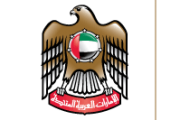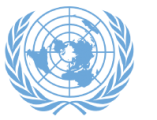Mr. President,
I congratulate Sweden on its presidency of the Council and applaud its commitment to gender balance in Security Council briefers this month.
The UAE supports Sweden’s dedicated focus on children and armed conflict and its convening of today’s debate. I would also like to thank Special Representative Virginia Gamba, UNICEF Executive Director Henrietta Fore, and Civil Society Representative Yenny Londonyo for their insightful briefings this morning.
There is nothing more universal than the principle that children are entitled to special protection. It is something that we can all agree on, no matter our policy positions or how entrenched our disagreements may be. The knot in the pit of your stomach when you realize what is happening to children around the world affects us all because it is an affront to our shared humanity. For this reason, we should all be extremely concerned by the significant increase of verified grave violations against children in 2017.
Children are entitled to special protection not only because they deserve a future, but also because they represent our future. We know that there is nowhere on earth where children’s futures are more under threat than in my region, where children suffer enormously from the deluge of current crises. And this poses an existential threat to the future of the Middle East where 60 percent of the population of the Arab World is under the age of 30.
Throughout our region, the UAE is firmly committed to the protection of children affected by conflict both by providing humanitarian aid and ensuring their long-term wellbeing.
Mr. President,
As Special Representative Gamba mentioned in her briefing, the number of violations against children around the world in 2017 was unacceptably high.
In Syria, in particular, where there were more abuses against children than ever before, as the unresolved conflict endures as one of the most heartbreaking crises of our time.
Extremist and terrorist groups in our region also continue to pose a serious threat to children. Da’esh in Syria and Iraq and Al Qaeda in the Arabian Peninsula in Yemen, for example. These groups kill, abduct, recruit for suicide bombings, and sexually abuse children. They are also responsible for the attacks and the manufacture of explosive devices that cause child casualties and damage to infrastructure critical to the welfare and safety of children.
These are deliberate tactics at the core of the modus operandi of extremists and terrorists organizations. We also call on the international community to hold violent perpetrators of such atrocities to account.
Old conflicts pose equal suffering for children as newer ones. In the longest and most entrenched crisis in our region, we are appalled by Israel’s neglect of children in the occupied Palestinian territories and its detention of hundreds of Palestinian children in 2017. Such actions – as well as violence against children across the occupied Palestinian territories – will do nothing but continue to undermine Israel’s security.
We are also concerned with violations in the regions that surround us. In Somalia, Al-Shabaab continues to terrorize children and their families through heinous crimes, including public executions of children. While in Myanmar, Rohingya Muslim children continue to be persecuted as part of ongoing violence against this very unprotected community.
Allow me to also address the situation in Yemen – since the UAE is a member of the Coalition to Support Legitimacy in Yemen – which has been the focus of some in this discussion today.
The Coalition takes its responsibility for protecting all civilians in armed conflict – particularly children – very seriously. The Coalition has sustained efforts and will continue to do more to minimize the impact on children, because we believe deeply that every innocent child killed or injured in the conflict is a loss too many. The Coalition closely coordinates with all UN agencies and NGOs on the ground to ensure the protection of children and this will continue.
And to that end, in coordination with Special Representative Gamba, the Coalition established a dedicated Child Protection Unit, embedded within Coalition headquarters, as a means of improving the protection of children. I would like to take this opportunity to thank Special Representative Gamba for her close engagement with the Coalition, and reiterate the UAE’s deep appreciation for her important mandate.
Our continuous efforts to strengthen the protection of children have yielded positive results, including through the reintegration of Yemeni children who were recruited by the Houthi militia into their communities.
While we work to protect children in Yemen, the Houthis continue to terrorize the population. We condemn the Houthis’ complete disregard for children and their violations of international humanitarian law. Amongst their worst offenses are the despicable use of children as child soldiers and human shields, the use of civilian hospitals and schools for military purposes, the indiscriminate laying of landmines, as well as missile attacks on Saudi Arabia against their civilian population.
Mr. President,
There is no better way to halt the tragedy of children being unprotected in armed conflict than prevent those conflicts from breaking out in the first place. To that end, we call for better integrating child protections and prevention efforts, and we support the Secretary-General’s recommendations in his report in this regard, and call on the Security Council to reinforce those actions.
We also call for the full implementation of the women, peace and security agenda with its emphasis on conflict prevention and the meaningful participation of women. The involvement of women in prevention efforts will reap dividends for protecting children in the long term. Moreover, young people and their active participation in building peaceful and inclusive societies is also key to protecting children and preventing conflict.
And key to this is education. To that end, we support the UK’s focus in their statement earlier today on educating children as part of security and development efforts, including achieving SDG4.
Finally, regarding the Monitoring and Reporting Mechanisms for the Children and Armed Conflict report. We support the guidelines these mechanisms are based on and believe that they should depend on reliable sources and independent UN observers. In addition, we encourage the Special Representative’s office to work with and consult with concerned States to share insights and give input ahead of drawing conclusions, in order to better inform and empower a stronger and more robust child protection architecture focused on prevention.
Thank you.


